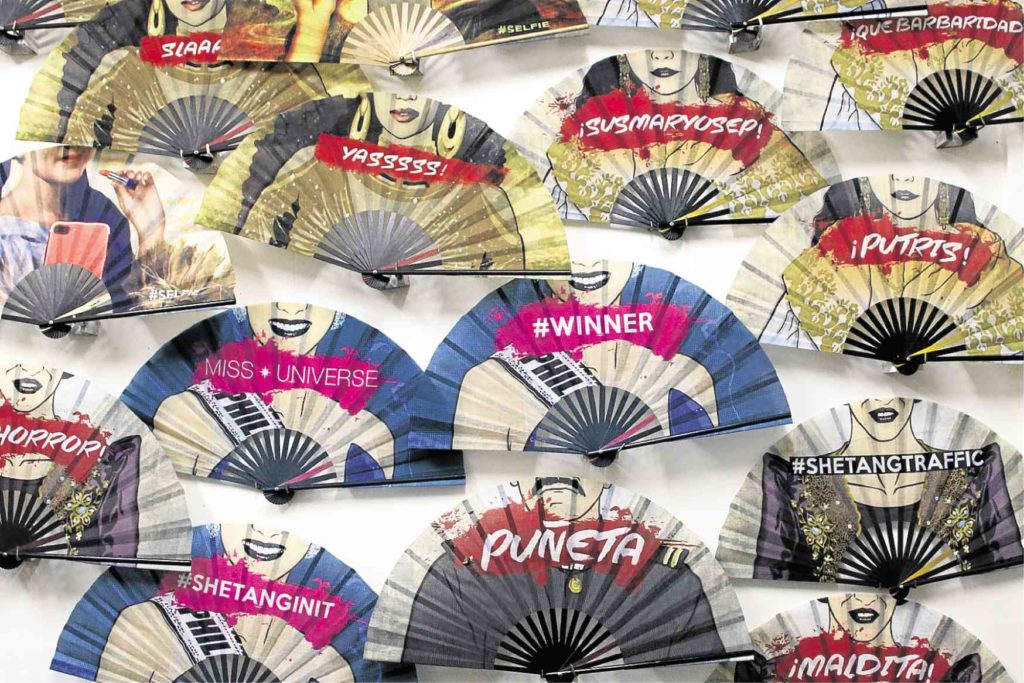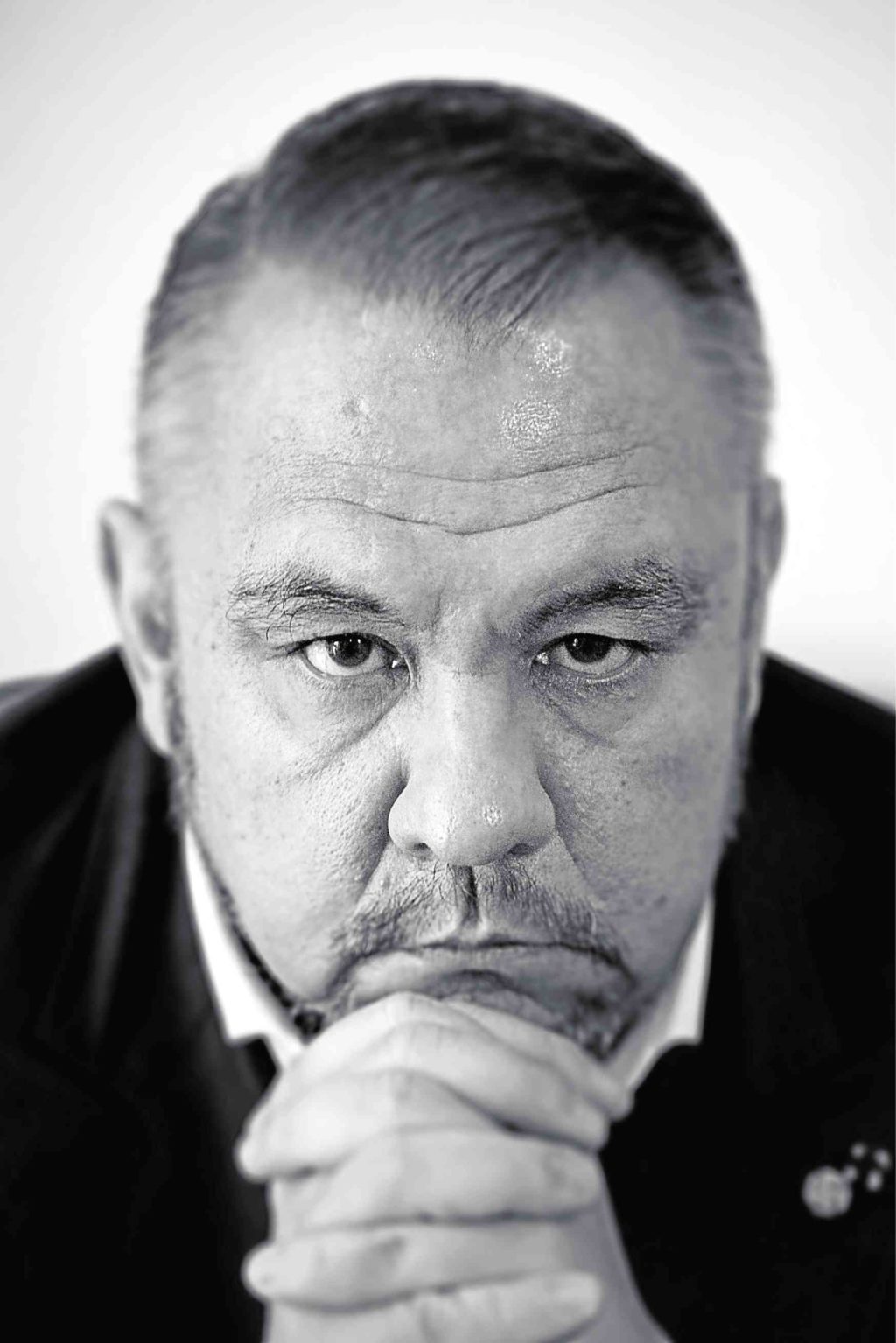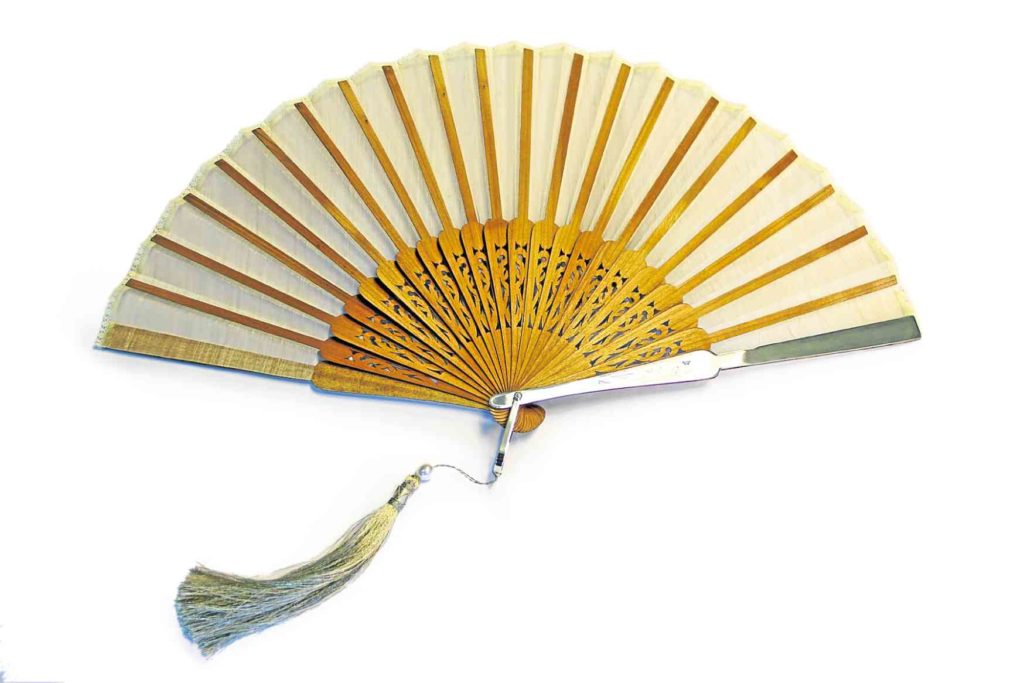#shetanginit: Heritage brand evolves
What do Spain’s Queen Sofia, Japan’s Empress Michiko, Nobel Laureate Aung San Suu Kyi, actress Sarah Jessica Parker and a handful of discriminating millennials have in common?
They all possess an enduring piece of Filipino heritage: A fan handcrafted by one of the Philippines’ oldest fanmakers, Casa Mercedes.
The abanico, or handfan, which was introduced to the country during the Spanish occupation, was a staple of the Filipino lifestyle in the 19th and 20th centuries, back when ladies communicated with their suitors using the language of the fan, and modern air-conditioning was just a figment of Western imagination.
Over time, however, the abanico was marginalized by changing fashion and globalizing markets. As fanmakers folded up and China-made “Philippine” souvenirs flooded in, Casa Mercedes fought to keep its legacy of crafting the best Philippine-made abanicos.
“Any business of whatever nature can be sustainable as long as you innovate and you understand where your market is going,” said Casa Mercedes’s creative director Jose Ramon Diokno Olives, known in his social circle as Monchet, the Fanman.
“By modernizing the fan and making it more relevant, you capture another market,” he said, showing one of his newest products, a small clutch with a built-in fan that he did for Fino Leatherware.
A fan for every terno
Olives created Monchet y Compania (MYC), the bespoke line of Casa Mercedes, following his retirement from the corporate world. After decades of noninvolvement in the 66-year-old family business, he finally found an outlet for his creative side with MYC.
“The generation of my mother—everybody knows Casa Mercedes because they used to use fans. Now their children are using their mother’s fans which are Casa Mercedes, and their children also use that so I have three generations of people using our fans in different ways,” he said.
Casa Mercedes was founded in 1951 by Angelita Diokno Olives, Mercedes Diokno Rovira and Leonor Diokno Casas, sisters of the late Sen. Jose W. Diokno.
Rovira, who was head of Philippine Airlines in-flight, frequently got requests from friends to buy abanicos whenever she flied to Spain. Seeing the potential of the business then, the three sisters went to Madrid to study the art of fanmaking.
In the mid-1950s, with the demands of their other roles—Mercedes was a top accountant while Leonor was a gynecologist who ran her own hospital in San Juan—the two sisters sold Casa Mercedes to Angelita. It has been in the Olives family ever since.
“During the heyday of Imelda (Marcos), she would have a terno with a matching fan. My mom would get calls from Pitoy Moreno and all these designers sending fabric and saying, ‘Madame is leaving for so and so, and she has this terno …’ so my mom would make different fans for different ternos,” Olives said.
The infamous wife of Ferdinand Marcos also bought fully embroidered piña fans from Casa Mercedes to give away when she would travel.
“We used to have it done in Taal. The ribs were narra—you could get it then—and her signature ‘Imelda’ would be embroidered on it, and the sides were painted with gold color. It was very traditional,” Olives said.
Casa Mercedes also did Sarimanok fans for the 1974 Miss Universe pageant held in Manila, coinciding with the opening of the Folk Arts Theater (now CCP Complex), Olives said.
Today, MYC is making handfans as state gifts for visiting first ladies and other VIPs.
Fit for royalty
It began in 2012 with the visit of Spain’s Queen Sofia.
“I had a light-bulb moment. I read that Queen Sofia was coming to Manila, so I called Susan Reyes (former President Aquino’s social secretary), and asked what’s the state gift for the queen of Spain. I asked her: ‘Can you give her a gift—on me?’” Olives said.
Casa Mercedes made a 13-inch Spanish-style abanico with sterling silver and mother of pearl. It was called Sofia.
“It was quite beautiful. After that, during the Aquino presidency, we were doing a lot of state gifts,” said Olives, who has also made hand fans for the first ladies of Singapore, Malaysia, and even the girlfriend of the French president.
For the 2016 visit of Emperor Akihito and Empress Michiko, Casa Mercedes was also commissioned to create a hand fan for the empress. Olives came up with a matching shawl and abanico set that Empress Michiko was seen using at the state banquet.
For Myanmar’s Suu Kyi, who was known to favor red, Casa Mercedes used an embroidered red piña silk with a little black “suksuk” design, which means a pattern is woven together with the fabric, removing and adding colors in the process.
When SM Aura opened with Sarah Jessica Parker, designer Rajo Laurel also asked Casa Mercedes to make a fan as token for the actress.
For Olives, putting Casa Mercedes fans in the hands of these VIPs is his contribution to keeping the family legacy alive.
“I’m a Diokno. I’m proud [to come from] a lineage of nationalists, so we do what we can to keep a certain tradition alive,” he said.
Part of keeping the tradition of fan-making alive is forging partnerships with both known designers and emerging brands.
To date, Casa Mercedes has partnered with Al Valenciano’s Balay ni Atong, which produces and markets fine Inabel weaving from Ilocos; Marga Nograles’ Kaayo, which showcases modern Mindanao in fashion; Quezon City Vice Mayor Joy Belmonte-Alimurung and Looie Lobregat-Ocampo’s Linea Etnika, which makes casual wear using indigenous fabrics.
“It’s a commitment to my family’s heritage. How can you turn your back on something that is really yours? It is your heritage and it is something that you do well but you just cannot sit there and let it run on its own. You have to innovate,” Olives said.
Puñeta, copycat
In 2012, Casa Mercedes joined Manila FAME for the first time with its abanicos and got an encouraging response, but it was not until 2016 that Casa Mercedes’s MYC hand fans really broke through with the Icoño series inspired by the movie “Heneral Luna.”
The Puñeta, Susmaryosep and Que Horror fans were big hits.
“I watched the movie two weeks before Manila FAME. We had already closed the collection. I said why don’t we make these fans—the Icoño series? It grew from there,” he said. “The response to that was phenomenal. In FAME it won the KATHA Award. People wanted it.”
The Icoño fans were as pop as pop culture could get, and together with the #shetanginit and Hugot series, they opened up a whole new market for Casa Mercedes.
“It’s not the typical grandmother fan that’s Spanish with hand-painting and all that. What I did was work on the basic model and embellish it a bit,” Olives said.
The Icoño series was too risqué for SM Kultura, which carries Casa Mercedes hand fans, but they were carried by Tesoro’s. They were also bestsellers at the MaArte fair and the HABI and Negros Trade fairs.
For the just-concluded Artefino bazaar in Rockwell, MYC came out with Lavinia fans, with the famous line: “You’re nothing but a second-rate copycat.”
“Consider it the way fashion works today: You have couture and then you convert it to fast fashion. So we create a couture version of a particular product and if there’s a large enough order, we fix it so it can be retailed at a particular price,” Olives said of his MYC fans.
Casa Mercedes fans cost P450 each for the ones sold at the Greenhills Christmas bazaar, P850 for the ones in Artefino, and up to P25,000 for the bespoke line.
“Our bread and butter is still our the classic fan; it’s still the mass market product. That’s what allows us to do new things and innovate,” Olives said, adding that the most important thing at this point is to ensure that the workers who have stayed with the family remain gainfully employed.
“Businesses like this—like any business—if you’re good to your employees, you will work much better. There has to be a certain level of trust and bond. You can never shortchange your employees because it will always reflect on the product,” Olives said.
He said he makes it a point to bring Casa Mercedes workers to the high-society bazaars that the company joins. Their booth is also thematic; for this year, their theme was “perya.”
“You have to think out of the box. You’re selling a fan. I don’t want it na parang tiangge lang. It has to be an experience,” he said, but that is not even the best part for Olives.
“For me, the thrill of our workers seeing all these Manila society buying and owning their fans—that’s what makes it fun, when they see that their work is appreciated,” he said. —CONTRIBUTED



